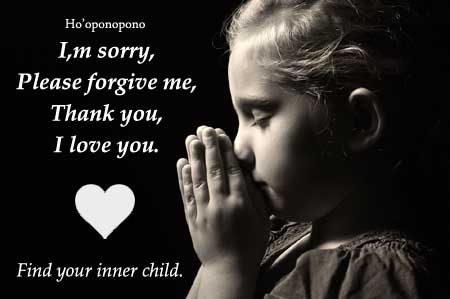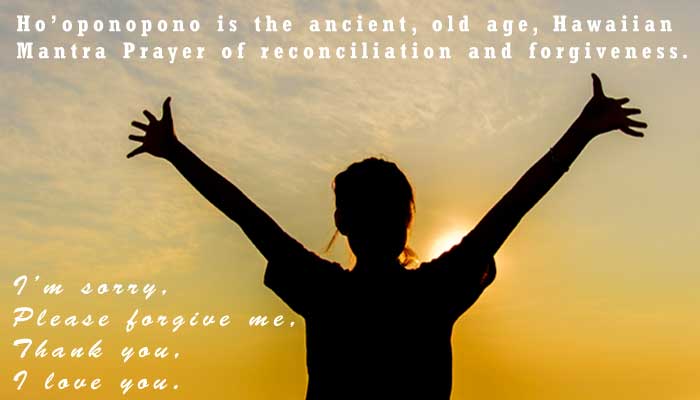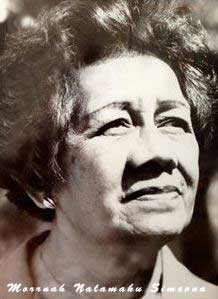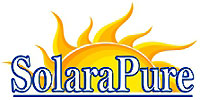What Is Ho'oponopono?
What is Ho’oponopono?
Ho’o- means to make, cause or bring about. pono – means correct, right, in perfect order. ponopono – means in order, cared for, attended to.
Ho’oponopono (ho-o-pono–pono)
Ho’oponopono (ho-o-pono-pono) comes from Hawaiin culture and is the ancient practice of forgiveness. It is also the practice of taking total responsibility for everything in your life. Ho’oponopono masters believe that all of the problems we experience in life start within each of us, and will only go away by working on ourselves first. All of the baggage we carry around as well as repressed negative thoughts and actions are stored in our subconscious and need to be brought to the surface and released to the universe.

Traditional Ho’oponopono
Traditional Ho’oponopono is about forgiveness, love, and acceptance and does not conflict with religious beliefs such as Christianity. It usually took place in family meetings where relationships were set right through prayer, discussion, confession, repentance, restitution, and forgiveness. It is the act of mental cleansing. Ponopono means to make things right. Early beliefs were that sickness was brought on by breaking kapu, or spiritual laws. Beliefs were the condition that could not be healed until the person rectified their offense. Forgiveness was sought from God, or, from the person with whom you’re having a dispute. “I love you, I’m sorry, Please forgive me, Thank you.”

Ho’oponopono for a new age:
Morrnah Simeona was a kahuna lapa’au (healing priest) and in 1976 she changed the traditional Ho’oponopono methods to create a more modern version that fits the social realities of the present day. The modern version is a general problem-solving process that goes beyond the family and creates a psycho-spiritual self-help process as opposed to the group process.
Morrnah’s modern version was influenced greatly by her Protestant and Catholic Christian education as well as her philosophical studies about India, China, and Edgar Cayce. Like the ancient Hawaiian Ho’oponopono, her modern version focuses on prayer.
However, unlike traditional Ho’oponopono, she says problems are the results of negative Karma, stating that “you have to experience by yourself what you have done to others,” and “you are the creator of your life situation”. Any improper action, activity, or “doing” is memorized within yourself and reflected in each and every entity and thing that was present when the “doing” took place. The purpose is “to release unhappy, negative experiences in past reincarnations, and to resolve and remove traumas from the ‘memory banks’.”
Jeremiah 33:3 (NKJV)
3 ‘Call to Me, and I will answer you, and show you great and mighty things, which you do not know.’
Matthew 6:33 (NKJV)
33 ‘But seek first the kingdom of God and His righteousness, and all these things shall be added to you.’
Zephaniah 2:3 (NKJV
3 ‘Seek the Lord, all you meek of the earth, Who have upheld His justice. Seek righteousness, seek humility. It may be that you will be hidden In the day of the Lord’s anger.’
Removing the Power from a Problem
According to Morrnah: a Divine Creator (God in my view) exists who attends to altruistic pleas of Men (Prayer); “when the saying ‘And it is done’ is used following a prayer, it indicates Man’s work ends and God’s begins.” “Self-Identity” signifies, that by doing ho’oponopono, the three selves or facets of consciousness are balanced and in touch with the Divine Creator. Through this transmutation inside the mind, the problems will shed, or give up, their power, and recovery or balancing can begin.
Morrnah Simeona passed away in 1992. Her student Dr. Ihalekala Hew Len co-wrote a book titled Zero Limits with Joe Vitale. The book tells the story of Vitale learning about Dr. Len and Ho’oponopono. Zero Limits gives the primary purpose of ho’oponopono as reaching “the state of Zero, where we would have zero limits. No memories. No identity.” To achieve this state, referred to as ‘Self-IDentity’, you have to repeat continuously the motto: “I love you, I’m sorry, Please forgive me, Thank you.”

